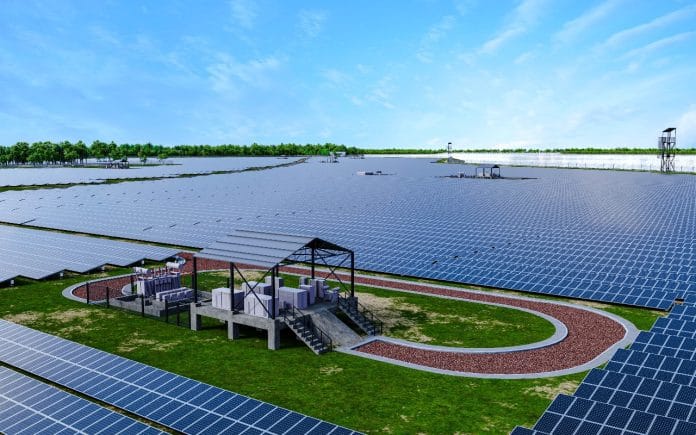The government is set to roll out a nationwide rooftop solar initiative targeting government schools, colleges, hospitals, and other public institutions, with the goal of generating 2,000 to 3,000 megawatts (MW) of electricity within the next six to eight months. The estimated cost of the project ranges from Tk 7,000 crore to Tk 10,500 crore.
Power Secretary Farzana Momtaz revealed the plan in an interview with Just Energy News at her Secretariat office on Thursday.
“I estimate each megawatt of rooftop solar will cost around Tk 3.5 crore, while land-based solar now costs about Tk 6 crore per MW,” she said.
To ensure inter-ministerial cooperation, the Power Division has issued over 100 demi-official (DO) letters – including to the Cabinet Secretary and all other secretaries – seeking administrative support.
The Ministry of Finance has endorsed the initiative and assigned the Power Division to lead implementation, pledging financial backing. Coordination meetings will soon be held with Deputy Commissioners (DCs) and Superintendents of Police (SPs) to lay out the implementation plan and launch pilot projects at the local level.
As part of the planning process, an interactive rooftop solar calculator has been developed (available at: https://onlineapplication.dpdc.org.bd/solar_calculator_bn.php). It allows users to estimate the power generation potential and installation costs of rooftop systems quickly.
The initiative will follow two investment models: the Capital Expenditure (CapEx) model for government offices and the Operating Expenditure (OpEx) model for educational and healthcare institutions.
“There will be no financial burden on government schools, colleges, and madrasas under the OpEx model,” the Power Secretary assured.
Local authorities at the district and upazila levels will use the calculator to prepare estimates and submit proposals to relevant ministries. A technical committee will review the submissions and recommend projects for funding to the Ministry of Finance.
To support implementation, all technical training institutes will be engaged to train workers in installation and maintenance, while outsourcing firms will be mobilized to recruit trained personnel. Consultations with these firms are scheduled for next week.
Development partners – including GIZ, the World Bank, and other donor agencies – will be approached for support. Discussions are underway to design a standardized training module for the workforce.
Each ministry will appoint two focal points to coordinate the initiative. Key stakeholders – including DCs, SPs, and utility companies such as DESCO and DPDC –will help facilitate deployment.
The project will tap into various financing and refinancing channels, including support from IDCOL, GIZ Bangladesh, BIDA, and the Bangladesh Green Fund.
Currently, Bangladesh generates 1,563.7 MW of electricity from solar power. Under the Renewable Energy Policy 2025, the government aims to meet 20% of its electricity demand from renewable sources by 2030 and 30% by 2040.

